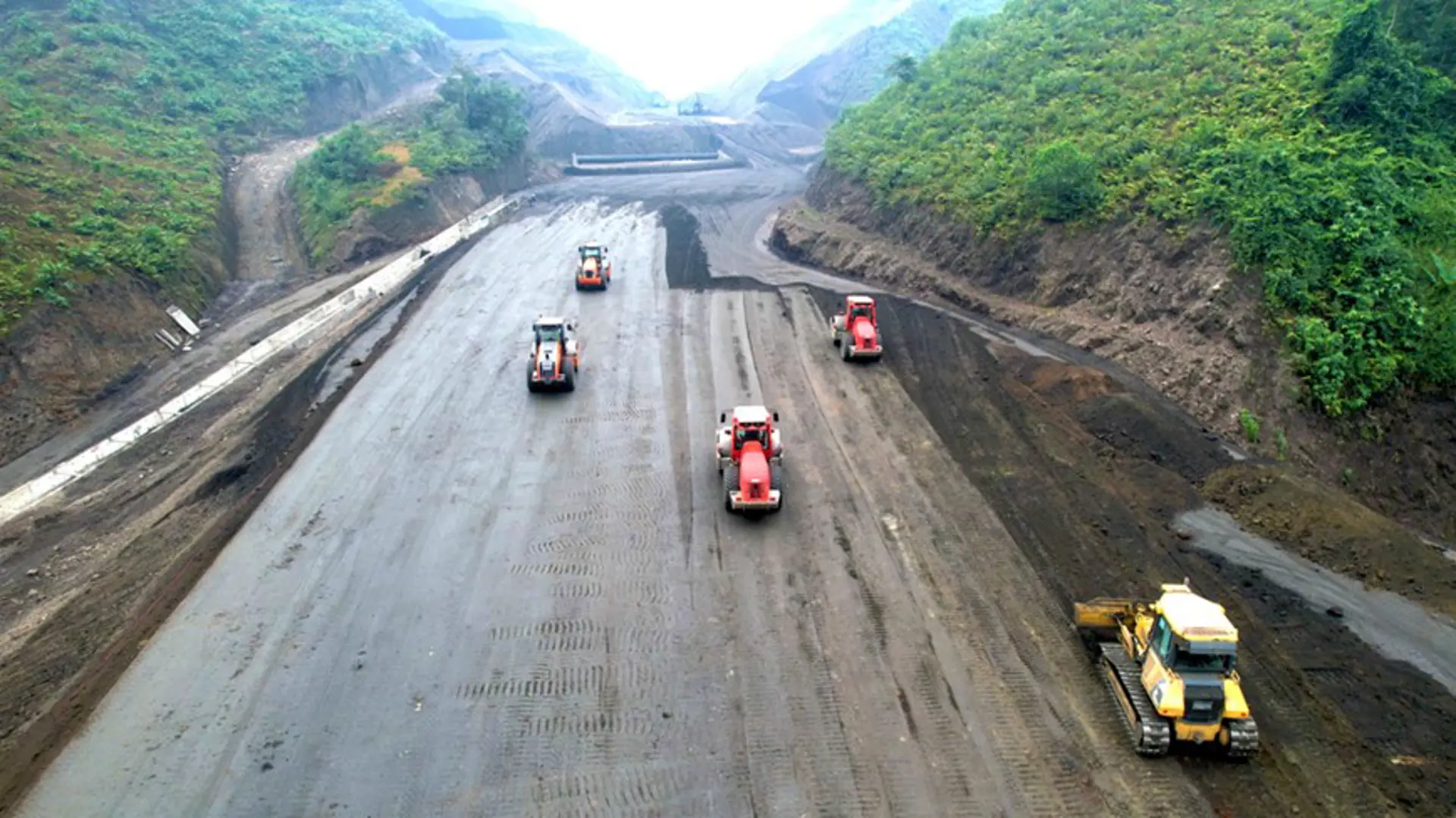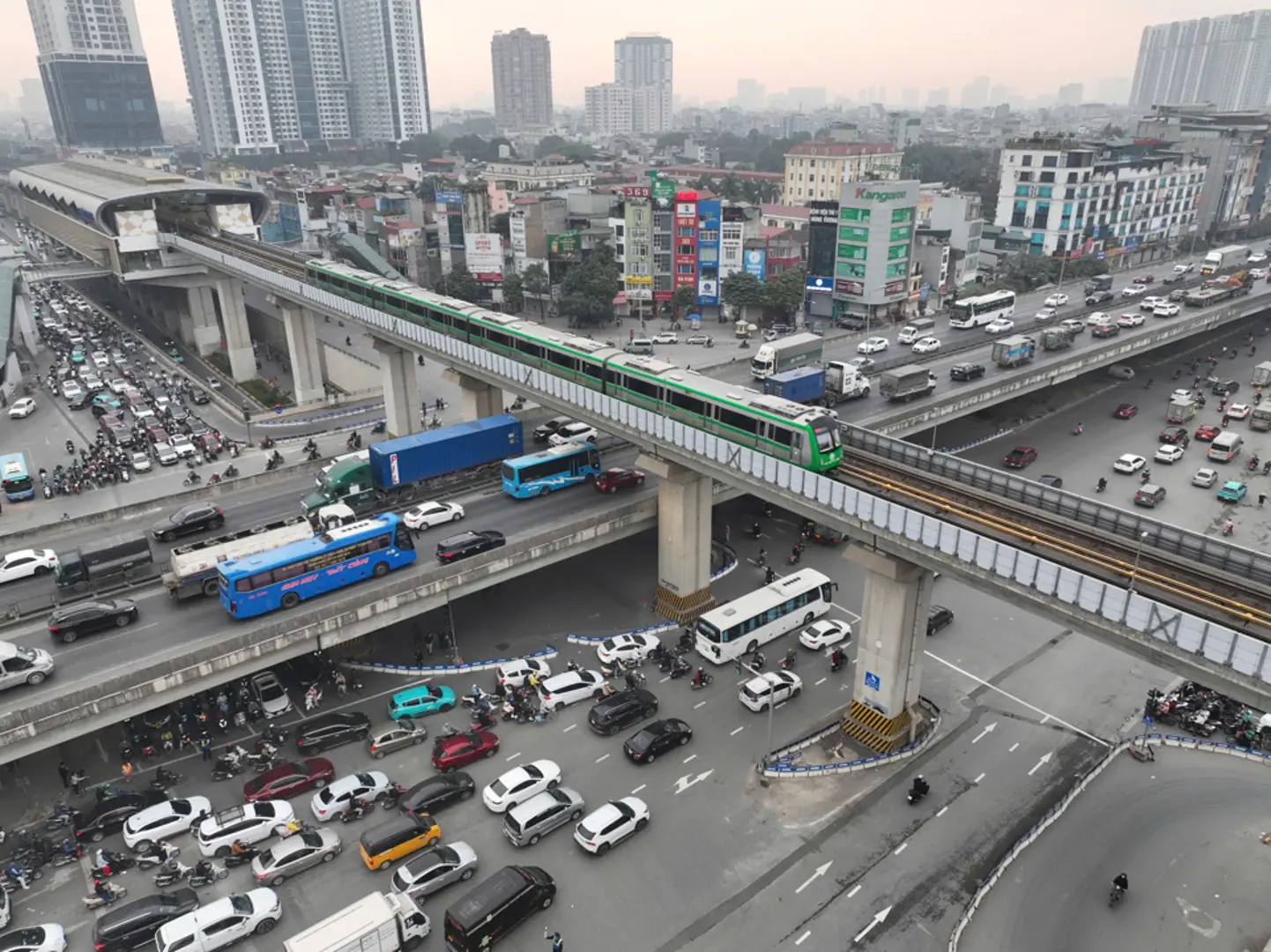Japan to support Vietnam in developing highly skilled workforce in emerging fields
The Japan Business Federation (KEIDANREN) considers Vietnam one of its most important partners and is committed to cooperation in digital and green transformation.
Japan will support Vietnam in achieving its goal of becoming a high-income country by 2045, with a focus on developing Vietnam's human resources in new energy, semiconductors, digital technology, and next-generation automobiles.
| Deputy Prime Minister Le Minh Khai (r) and Japan’s Minister of Economy, Trade and Industry (METI) Saito Ken. Photos: Tran Manh |
Japan’s Minister of Economy, Trade and Industry (METI) Saito Ken shared the view during a meeting with Deputy Prime Minister Le Minh Khai on May 22, who is currently in Japan to attend the Nikkei Forum 29th Future of Asia.
At the meeting, Deputy Prime Minister Le Minh Khai called on METI to strengthen economic linkage and cooperation between the two countries to work together to develop digital infrastructure, the digital economy, and the green economy.
He urged Japan to continue supporting Vietnam's industrialization, modernization, and efforts to build an independent and self-reliant economy and to implement three strategic breakthroughs.
The deputy prime minister requested Japan's assistance for Vietnamese enterprises to integrate more deeply into Japanese supply chains and to promote cooperation in the logistics sector. He also suggested exploring cooperation in institutional development and human resource training for Vietnam in the semiconductor industry, new industries, green transition, and digital transformation, which would help Japan cope with its aging population.
On this occasion, he welcomed METI's cooperation with Vietnam under the Asia Zero Emission Community (AZEC) initiative by establishing a working group to promote green transition.
METI Minister Saito Ken expressed his desire to boost economic, trade, and industrial cooperation with Vietnam through digitization, supply chains, green transition, sustainable energy transformation, and renewable energy development. He announced Japan's willingness to cooperate with Vietnam under a US$1.5 billion initiative to support Japanese businesses investing in the Global South.
Minister Saito also expressed the need for the Vietnamese Government to ensure a stable power supply for the 2,500 Japanese companies operating in Vietnam.
| Deputy PM Khai (middle) and chairs of the Japan-Vietnam Economic Cooperation Committee within the Japan Business Federation (KEIDANREN), Masayuki Hyodo – Chairman of Sumitomo Group, and Masayoshi Fujimoto –Chairman of Sojitsu Group. |
During a meeting with the co-chairs of the Japan-Vietnam Economic Cooperation Committee within the Japan Business Federation (KEIDANREN), Masayuki Hyodo – Chairman of Sumitomo Group, and Masayoshi Fujimoto –Chairman of Sojitsu Group, Deputy Prime Minister Le Minh Khai appreciated KEIDANREN and related Vietnamese agencies' agreement to implement the first phase of the Japan-Vietnam Joint Initiative in a new era, aimed at improving Vietnam's investment environment.
He urged the Japan-Vietnam Economic Cooperation Committee to encourage KEIDANREN member companies to increase investments in Vietnam in new fields like high technology and semiconductors, and to integrate Vietnam into Japanese supply chains in automotive, electronics, medical equipment, and textiles.
He also asked for support to train high-quality human resources in semiconductors to meet the needs of both countries, organize business delegations for policy dialogues with Vietnam, and annually address obstacles to create a favorable investment environment.
Hyodo stated that the federation considers Vietnam one of its most important partners and is committed to cooperation in digital and green transformation and encourages member companies to expand investments in Vietnam.
| The Vietnamese delegation during a meeting with JBIC's Governor Hayashi Nobumitsu. |
Meanwhile, Fujimoto emphasized the determination to achieve concrete results in green and digital transformation and improving the investment environment under the Japan-Vietnam Joint Initiative in the new era and stressed Japan's willingness to share expertise in high-quality human resource training.
In a meeting with the Governor of Japan Bank for International Cooperation (JBIC) Hayashi Nobumitsu, Khai sought support from Japanese investors for technology transfer in the areas of energy transition, green transition, digital transformation, circular economy, and innovation, as well as to assist Vietnamese businesses in accessing funding for renewable energy projects and new technologies such as hydrogen, ammonia, and carbon capture and storage.
Regarding the Nghi Son Refinery and Petrochemical Complex, a joint venture funded by four companies: Vietnam's state-owned PetroVietnam (PVN), Kuwait Petroleum International (KPI), Idemitsu Kosan, and Mitsui Chemicals from Japan, the deputy prime minister confirmed that it is a large-scale investment project of great interest to both countries' leaders and people.
Governor Hayashi reiterated JBIC's commitment to supporting Vietnam with capital, technology, and human resource training in new fields under AZEC and acknowledged Vietnam as an attractive destination for Japanese businesses. He expressed his desire to work closely with Vietnam to promote Japanese investment further and solve problems in some projects and reaffirmed his commitment to the Nghi Son Refinery project.
With a total investment of approximately $9 billion, Nghi Son is one of the largest foreign-funded projects in Vietnam. It began commercial operations in late 2018 and has a processing capacity of 10 million tons of crude oil per year, sourced from Kuwait. The refinery supplies about 35% of Vietnam's domestic gasoline and oil needs.

Vietnam seeks Japan’s new-generation ODA for major transport projects
Japan remains Vietnam's primary economic partner, with collaboration expanding across a range of sectors.

Vietnam among Japan’s top partners: KEIDANREN
Japanese firms are eager to expand in Vietnam and boost economic cooperation in various fields, including industrial support, digital transformation, high-quality workforce training, and global supply chain development.

Hanoi identifies culture, education as key pillars in relations with Japan
Healthcare, education, and culture are the current focus of investment in Hanoi.





















